-
Some older Americans are sacrificing their life savings to pay for medical treatment.
-
It means they can’t retire and are struggling to pay their bills or afford groceries.
-
Social Security, insurance, and their life savings aren’t enough.
Kimberly Mullen, 61, is couch surfing.
She drained her bank accounts paying out of pocket for cancer treatments for two years, waiting for Medicare to kick in. Plus, her mother had cancer at the same time.
“She didn’t survive, but I did,” Mullen said. “But it cost us our home and all of our life savings and everything — I’d say right around $400,000 between the two of us.”
Mullen now makes $10 an hour cooking part-time at a truck stop in rural Kentucky. She drove trucks for 38 years before her diagnosis and would like to get back on the road, but she’ll have to pay for more training. She can’t afford a home, and she needs a local address to qualify for affordable housing. She’s worried she’ll have to work until the day she dies.
It’s a story all too familiar for some older Americans: An unexpected health crisis derails their retirement planning. With insufficient help from health insurance or Social Security, medical bills eat up any savings or income they have.
“People who are very wealthy, their savings are basically self-insurance,” Nancy Altman, the president of advocacy group Social Security Works, told Business Insider. “Healthcare costs in this country are higher than anywhere else in the world, and we pay more for healthcare.”
Americans over 65 often have two options for health insurance: private market or Medicare. The former is too expensive for many, and the latter can come with high out-of-pocket costs.
It’s another example of how the retirement crisis is playing out among America’s older residents — and a sobering warning for younger workers as retirement savings gaps widen and cancer rates rise.
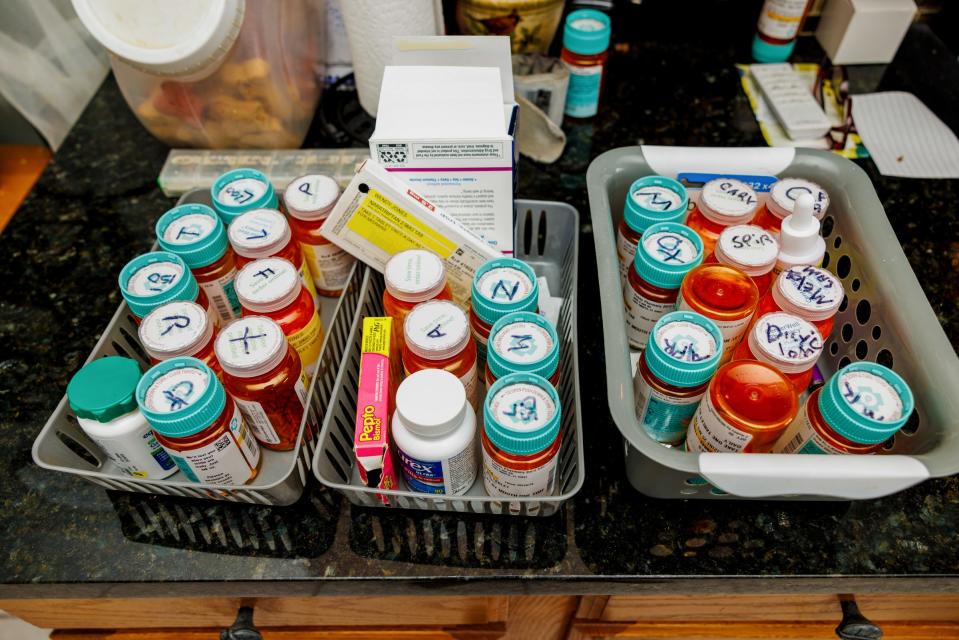

The American Cancer Society estimates over 2 million new cancer diagnoses and about 600,000 cancer deaths this year in the US, though the cancer mortality rate has fallen since 1991. About 40% of people with a cancer diagnosis deplete their life savings within the first two years, while cancer survivors are 2.7 times more likely to file bankruptcy. This particularly impacts older adults, who are more prone to many cancers and are often ineligible for clinical trials.
Plus, Dr. Karen Knudsen, CEO of the American Cancer Society, told BI that financial limitations can hamstring a patient’s recovery. “What is very common is either skipping doses for cancer therapy or halving their doses so they can extend the time which their current prescription will allow them to stay on the drug or therapy.”
Dozens of older Americans told BI in recent months that their Social Security and pensions aren’t enough to get by without working. Some said they have to rely only on Social Security due to health issues, while others said they’ve taken jobs at Walmart, a hospital, or with Uber to supplement government assistance.
For this story, BI spoke to 10 older Americans with health issues. Most of them said they’re scraping by due in part to high medical costs. Many have sacrificed vacations, home repairs, or even medical appointments to make ends meet.
“It could happen to anybody overnight,” Mullen said. “Your life could be turned upside down in a split second because you never know if you’re going to get sick or you’re going to get hurt.”
Medicare doesn’t cover it all
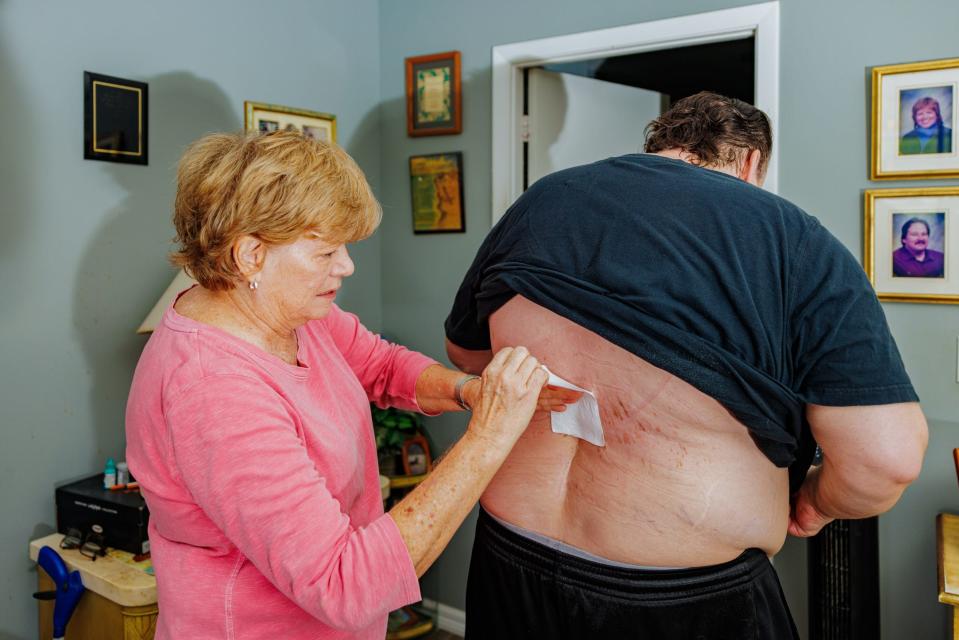

Wendy Jones, 71, is a mother of four who has dealt with various forms of cancer since 2005. For over a decade, she was the family’s breadwinner, earning between $70,000 and $90,000 yearly as a paralegal while being a caretaker to her husband, who was injured in 1992 in a workplace accident.
When she was diagnosed, finances became a major struggle. Even with insurance, medical payments were hundreds of thousands of dollars each month. Surgeries, ambulance costs, medications, and other emergency expenses have eaten away at their 401(k)s and savings. Recently, they lost their Medicare Part B — she suspects it’s because she put money her mom gave her into a savings account, putting her assets over the eligibility threshold. Now she’s struggling to afford groceries and essentials.
Jones, who gets $2,200 a month in Social Security, has had to take on part-time work, which made her ineligible for some federal assistance.
“It’s a catch-22: People say, just get a job, but I tried that, and everything else was taken away from me,” Jones said, noting she will work as long as she can drive, walk, and answer phones. “I didn’t get ahead. I wasn’t able to save or progress in any way whatsoever.”
Retirement expert and researcher Teresa Ghilarducci, who chairs the economics department at the New School for Social Research and directs the Schwartz Center for Economic Policy Analysis, said that Medicare is leaving retirees who aren’t in poverty but still aren’t staying afloat in a tight bind.
“If you are in the top 10%, your own wealth can take care of those long-term care needs, but it’s the middle that is having to go without the care they need or exhausting all forms of wealth or home equity or going into debt to pay for it,” Ghilarducci said.
An analysis from the Kaiser Family Foundation found that, in 2022, Medicare households spent $7,000 on healthcare; non-Medicare households spent just $4,900. Healthcare spending also made up a greater share of Medicare households’ spending.
That was the case for Rebecca Buffum, 74.
Buffum, who works in healthcare, had expected retirement to be a smooth, easy transition. But a cancer diagnosis and multiple years of treatment bulldozed through those plans.
She paid for chemo out of pocket, spending her way through her retirement savings and maxing out her credit cards. She racked up what she estimated was around a million dollars in medical bills and ended up declaring bankruptcy.
Though she’s in remission, she’ll have to keep working. Her Social Security covers her mortgage and not much else.
“I am blessed that, number one, I’m still alive, and number two, that I have the capacity to work,” she said. “It’s a double-edged sword.”
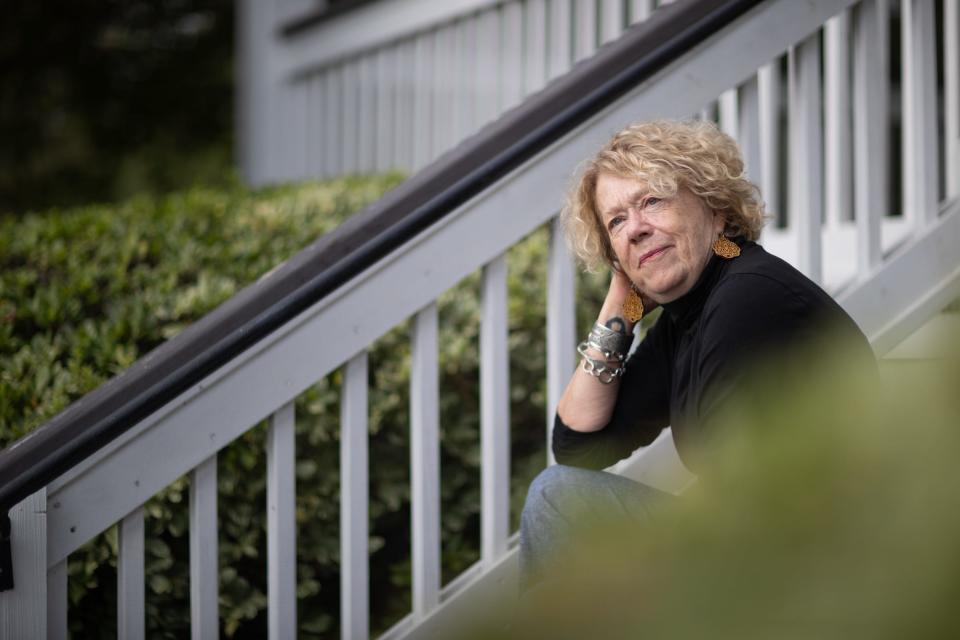

Making sacrifices and setting a strict grocery budget
Health issues lead some older Americans to skip medical appointments, sacrifice the quality of their diets, and quit their jobs entirely. It means that their illnesses are taking more than their health — the fabric of their lives is changed entirely, leaving many lonely and without the creature comforts that can make life enjoyable.
That’s a far cry from the vision of retirement many had — and it shows the very real impact of the cracks that some of America’s seniors fall into. They might spend their lives living middle-class, only to slide into poverty in their old age.
When Marion, 70, quit her job in restaurant management due to health issues, she cashed out her 401(k) early and moved in with her sister and her sister’s boyfriend to save money.
To supplement the $1,200 in disability she received a month, she started cleaning houses and selling her art.
Like many baby boomers BI spoke with, Marion cut back on discretionary spending like vacations, dining out, cosmetic treatments, and new clothes purchases. Others have drastically reduced spending on necessities like healthy food.
Robert Papalia, 74, has capped grocery spending for himself and his wife at under $100 a week, rotating through 30 credit cards to afford all their health and housing repair bills. He retired early in 2010 because of his wife’s health issues, living on his company’s pension and Social Security but struggling to afford medical bills and high property taxes.
“Do we have money in the bank? Yes. Is it a lot of money? No,” Papalia said. “I look at my wallet at the end of the day, and it’s a difference between night and day.”
Leonard Bianconi, 67, can’t afford to go out to eat or buy many groceries on his SNAP benefits, so he relies on food pantries. He finds fruits and vegetables often on the precipice of going bad — a major challenge for Bianconi, who’s diabetic and needs a fresh diet.
“Right now, I have no extra money to do anything. My life is pretty lonely. I don’t have any money to go anywhere. I can’t really do things. Even going to the cinema would be difficult,” Bianconi said.
Feeling grateful and clinging to hope
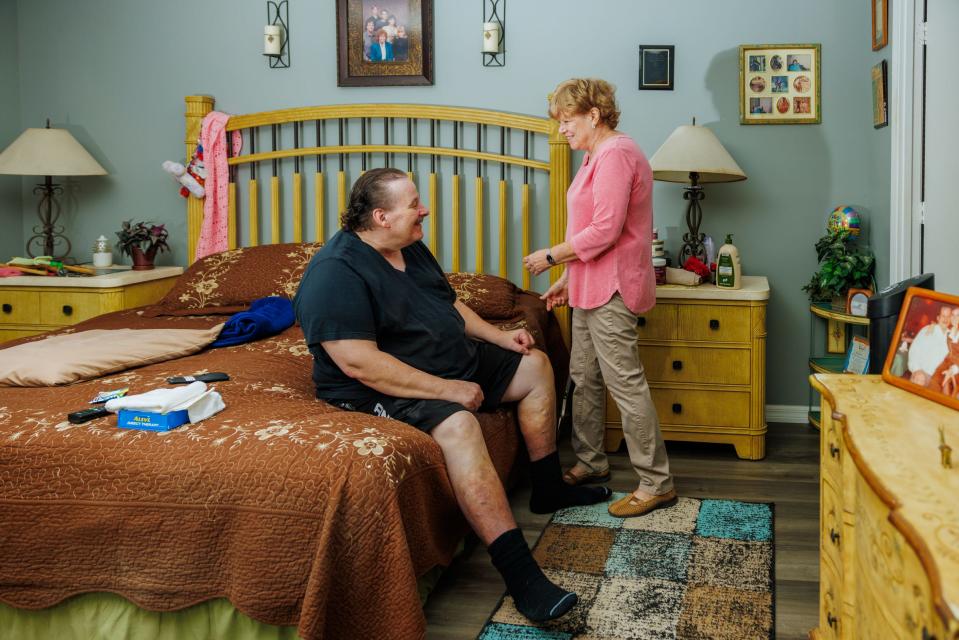

Many of the older Americans who spoke to BI said they’re remaining as positive as they can about their futures, with some expecting their conditions to improve.
In fact, Gallup found three in four retired Americans think they have enough to live comfortably, even though 45% of non-retirees anticipated coming up short by the time they retire. About 58% of retired Americans noted Social Security is a “major source” of income in their retirement, compared to the 35% of non-retirees who expect Social Security to be a large portion.
Monique Morrissey, a senior economist at the left-leaning Economic Policy Institute, said that while more ambitious proposals to reform long-term care haven’t passed, the Biden-Harris administration has still made a dent in other pressing issues.
“In a much more limited way, they have done a lot,” Morrissey said, pointing to the administration’s success in lowering prescription drug costs. “There are some things that they’ve sort of been patching when they can, when they can get Republicans to go along with it, but there are other big gaps in our patchwork system that still need to be addressed.”
Frank Amend, 63, was working as an engineer and marketing manager when he experienced chest pain two decades ago. Weeks later, he underwent a heart catheterization procedure, followed three years later by a triple bypass.
His insurance covered most of his expenses, though he still took a hit. He recovered fast, and he returned to work in 2006. He said he “works for my healthcare” and acknowledged he’s “one of the fortunate ones who can retire at 65.”
Amend recalled standing behind a man who broke down in tears at the pharmacy when he heard his wife’s prescriptions would cost $700. From that moment, he knew he wanted to get involved in advocacy work, collaborating with the American Heart Association to assist survivors struggling with medical bills. He helped pass a bill in North Carolina banning smoking in all bars and restaurants, and he’s spoken at presidential healthcare task force meetings.
Amend said it’s crucial for older Americans to believe everything will be OK, noting “your mindset perpetuates what your outcome will be.” Still, he said he’s playing a small but important part in working toward healthcare equality, given many medications still charge sky-high prices and many Americans are uninsured.
“The people working two or three jobs to try to put a roof over their family’s head and food on the table, they can’t afford healthcare,” Amend said. “Thank God for Obamacare, but in some cases, it just doesn’t cover it.”
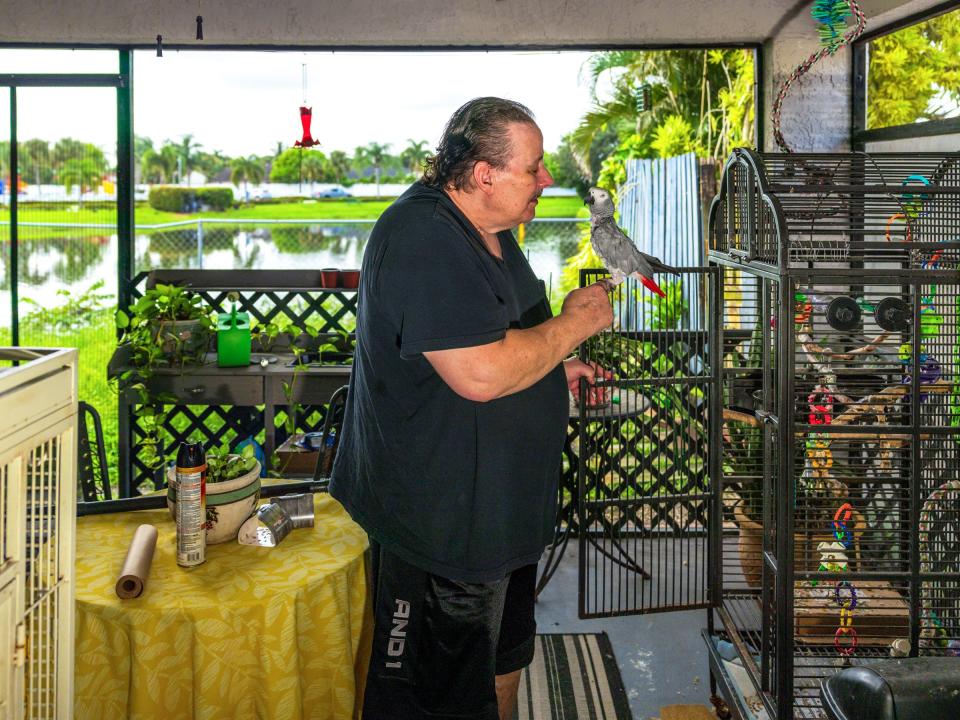

Read the original article on Business Insider
